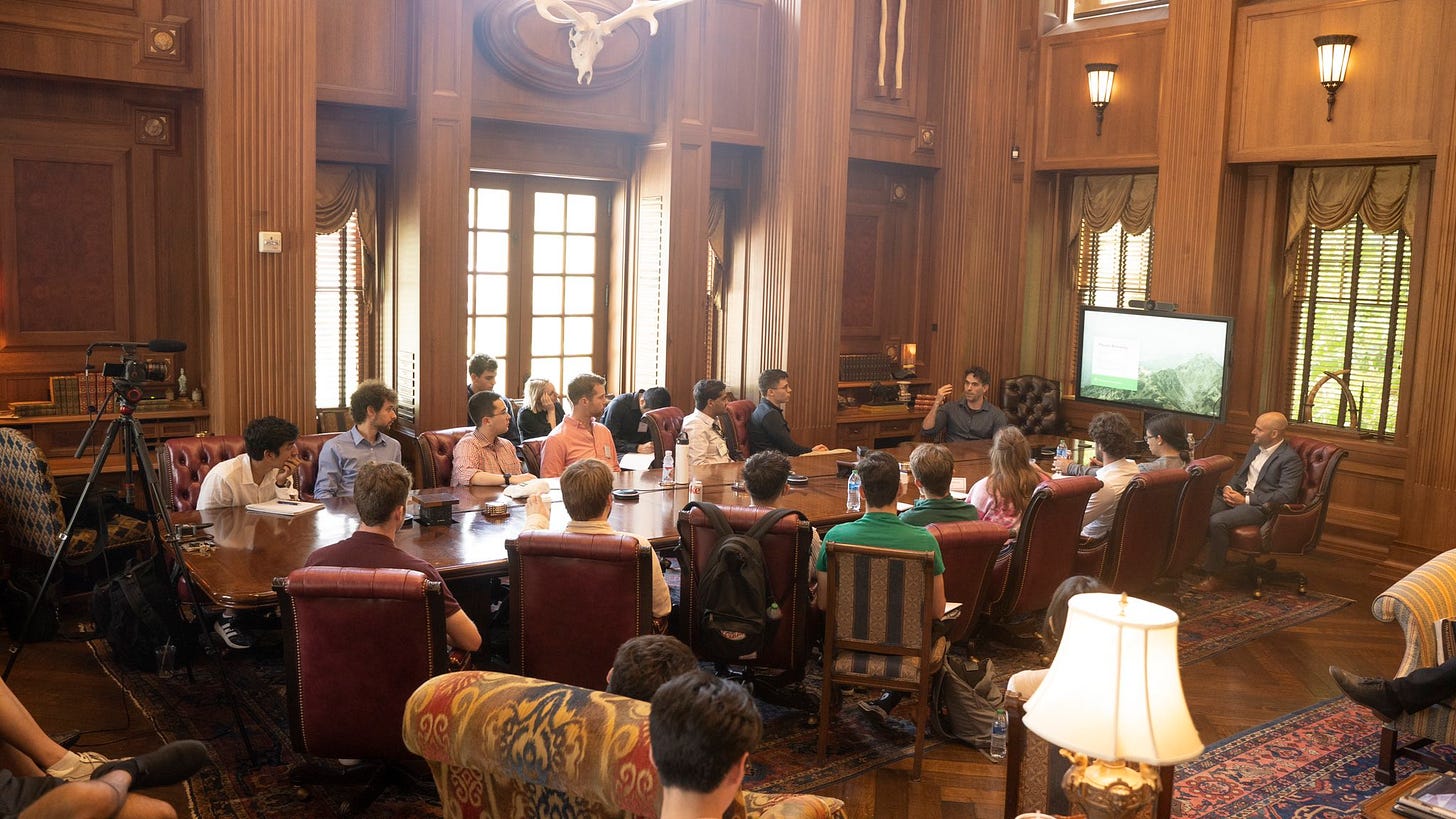UATX Series 3 - Thiel Sounds Like Non-fiction
Mike Solana and Talent Seeking
For the 3rd day of UATX-mas, Founders Fund gave to us, a Q&A with Mike Solana. I feel like I’ve watched in real time my fellow UATXers improve greatly in their selection of questions. Honestly, there were so many bubble-popping ideas I’ve written down that there could be a post-Solana series all on its own. Today brings a short but illustrative article about a line from Solana that I ignored but three or four people asked me about.
The line was (I’m almost sure verbatim): “Peter [Thiel] would always drill into me, prying and figuring out exactly what I think … if that was impossible then he would let the conversation drift”. This line was unremarkable to me because who wouldn’t do that? I certainly do, constantly, in almost every conversation I have. I would think everyone at least tries to, even if they fail. Of course, considering this point consciously, this is not the case. People converse for all sorts of unspecific, indirect and chaotic reasons, from extraversion to social status to sexual desire.
Reiterating my favorite quote from Robin Hanson and Kevin Simler’s The Elephant and the Brain:
If exchanging information were the be-all and end-all of conversation, then we would expect people to be greedy listeners and stingy speakers. Instead, we typically find ourselves with the opposite attitude: eager to speak at every opportunity. In fact, we often compete to have our voices heard, for example, by interrupting other speakers or raising our voices to talk over them. Even while we’re supposed to be listening, we’re frequently giving it a halfhearted effort while our brains scramble feverishly thinking of what to say next.
…
Speakers are eager to impress listeners by saying new and useful things, but the facts themselves can be secondary. Instead, it’s more important for speakers to demonstrate that they have abilities that are attractive in an ally.
Going one level up, in terms of my aspirations, do I think it’s particularly interesting that I share this trait with Thiel? The answer here is still no, since this isn’t necessarily a natural trait for me. I’m more introverted and naturally like asking people about specific niche topics. More often than not, I’ll just end or exit conversations that I don’t care about, or even tell someone to stop trying to talk to me. I do deep dives on people’s interests and talents because I consciously choose to. I choose to do it because I want to find interesting people. I didn’t learn this from Thiel, or Tyler Cowen, but just chose it because it seems like common sense and because it seems to be working.
This makes me wonder how many insights for selecting top founders, or tail-end people in general, are simply “common sense” assumptions about how people behave that are not lived up to by anyone. Combining these preferences and assumptions will almost certainly tell you about the people you surround yourself with, so I highly recommend it. Maybe you can even use my Everyone’s Brains are Science Fiction series as a guide.
Nested deceptions always seem like the worst types of inefficiency to me. Come on, what kind of world ends up with false assumptions about all people which turn out to be social games which when evaluated truthfully, turns out to be meaningful criteria for founder selection? Seems contrived and unnecessarily complicated. Totally science fiction. But it means that taking some “common sense” very seriously and applying them to real life with a few extra steps may be a fertile grove for many more insights to come.


